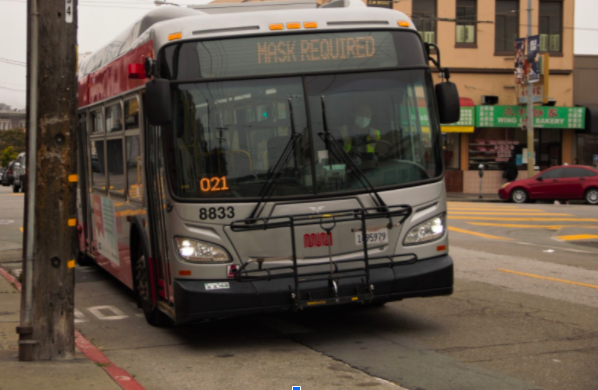Bree Mawhorter, the chief financial officer of Muni, made the point very clear at Tuesday’s meeting on the agency’s financial crisis:
“This is a revenue problem, not a spending problem,” Mawhorter told the San Francisco Municipal Transportation Agency board.
Muni has already made major cuts. The system has a hiring freeze. The agency is in a $50 million hole not because it’s overspending, but because there’s not enough money coming in.

As one speaker noted, “I don’t see SFMTA in the news for wasting $180 million in overtime. That was the SFPD. It’s not SFMTA’s fault that offices are empty downtown; that’s investment bankers and slumlords. Let’s start with our policies and practices that allow a handful of greedy actors to bleed our city dry.”
Several speakers, including Christopher White, director of the San Francisco Bicycle Coalition, pointed out that a potentially large revenue option—expanding the hours that parking meters run, and expanding some meters into other areas–has been shelved because of “community opposition.” One speaker noted that the SFMTA is refusing to “make car owners pay for storing their personal property on the public right of way.”
The problem with street parking fees, of course, is that people who own cars but don’t have garages—generally a more working-class demographic—get hit with the burden, while car owners who have a place to park off the city streets—generally wealthier people—don’t have to pay.
There’s a solution to that problem: California already has an annual car tax (called a registration fee). San Francisco could add its own, but base it on the value of the car: If you own a Tesla worth $100,000, you pay more than a person who has a ten-year-old cheap Honda. Then poor people with cars don’t pay parking fees and tickets, and rich people with cars subsidize Muni.
Not a radical idea, although it might take state legislation. State Sen. Scott Wiener is a huge supporter of Muni; maybe he could take this one on.
There are so many other revenue ideas for Muni that are not on the SFMTA agenda. Instead, Board Member Steve Heminger talked about the importance of a tax measure for the fall 2026 ballot, but that’s going to be a sales tax or maybe a parcel tax. Not a tax on rich people. And according to the polling, it’s only at about 50 percent, Heminger said.
That means Muni needs to protect its service: “We can’t cut our way to victory at the ballot box,” he said. “If we can keep faith with the voters, and build a coalition around a solution, we have a chance.”
And yet, Mawhorter told the board that “in the long term, we cannot support the level of service we are now providing.” That is: Because this city won’t look for ways to tax the rich, Muni is going to start to collapse.
This is really depressing.
The good news is that the board generally agreed that it’s not going to cut school crossing guards. School Board Member Alida Fisher said the district has no money either, but that SFUSD would work with Muni to try to find funding for that program. Maybe the Police Department, which is supposed to be about public safety and seems to have a lot of money, could pay for this.
I don’t get how Mayor Daniel Lurie plans to keep Muni functioning. If he can’t, the city is in even more serious trouble.






